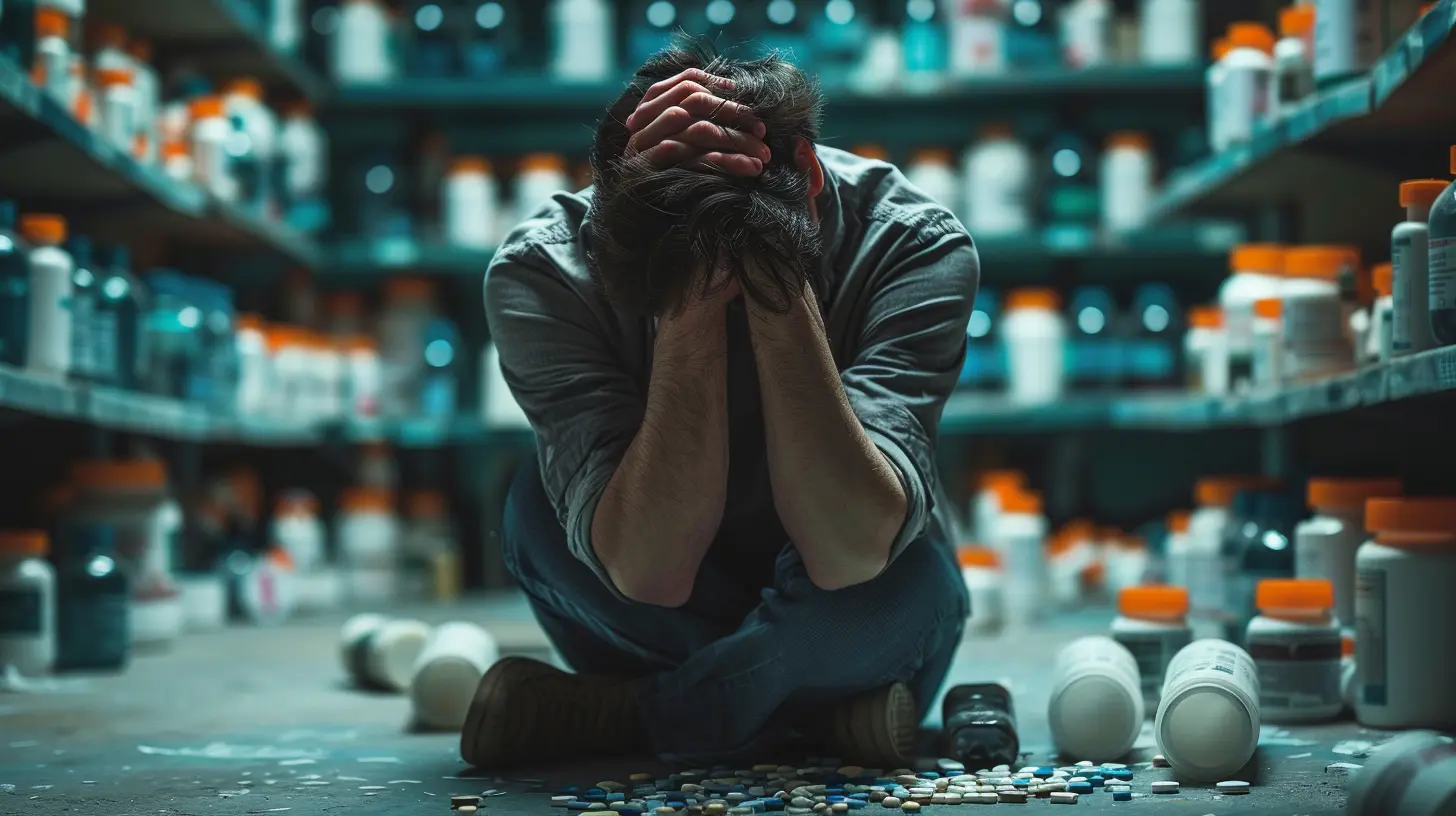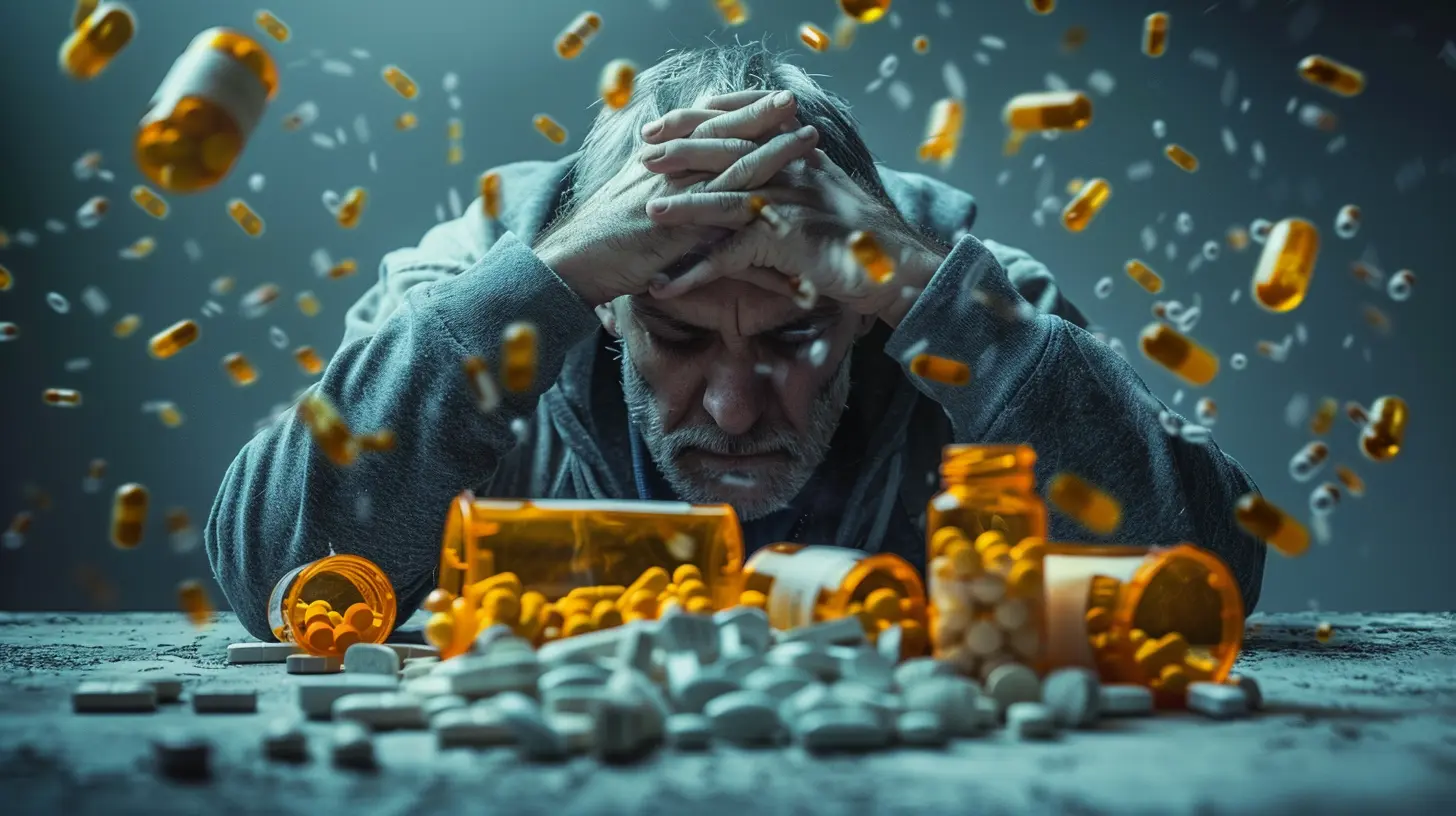Addressing the Stigma of Addiction in Society
29 October 2025
Addiction—it's a word that's loaded with judgment, fear, and misunderstanding. When most people hear it, their minds often dart to images of chaos, broken families, or individuals living on the streets. But here's the truth: addiction is not a moral failing. It's not about weakness. It's a complex and deeply personal issue that affects millions of people across all walks of life. And yet, the stigma surrounding it makes it even harder for those struggling to get help.
In this article, we’re going to dig deep into the roots of that stigma, how it shows up in everyday life, why it matters so much, and most importantly, what we can all do to chip away at the shame and silence. It’s time to stop whispering about addiction and start talking about it openly—with compassion and understanding.
What is Stigma—and Why is it So Damaging?
Let’s start with the basics: stigma is a set of negative beliefs or stereotypes about a particular group of people. When it comes to addiction, stigma shows up as judgment, exclusion, and discrimination. It’s the automatic assumptions people often make—like believing someone with an opioid addiction is dangerous, or thinking that a person with alcohol use disorder just "lacks willpower."Now imagine being in that person’s shoes. You’re already fighting a tough internal battle, and on top of that, society tells you that you should feel ashamed. That kind of stigma doesn’t just hurt feelings. It creates real barriers to recovery. People delay seeking treatment, hide their struggles, and sometimes even internalize the bias—believing they’re “less than” because of their addiction.
Stigma isn't just a cloud hanging overhead—it's a wall standing in the way of change.
A Quick Reality Check: Who Struggles With Addiction?
Here’s something that might surprise you: addiction doesn’t discriminate. It affects people of all ages, genders, races, and income levels. From college students misusing prescription stimulants to middle-aged professionals grappling with alcohol, addiction touches millions of lives—probably even people you know.According to the National Survey on Drug Use and Health (NSDUH), over 20 million Americans aged 12 and older struggled with a substance use disorder in recent years. And yet, only about 10% received treatment. Why? A big part of the answer lies in stigma.
People are afraid of being judged. They're afraid of being labeled. They don’t want to risk losing their jobs, their relationships, or even their dignity by coming forward.
The Different Faces of Stigma
Stigma isn’t one-size-fits-all. It takes many forms, sometimes obvious and sometimes subtle. Understanding these different types can help us spot them in daily life—and call them out when we see them.1. Public Stigma
This is the stigma that exists in broader society. It includes media portrayals of people with addiction as criminals, “junkies,” or hopeless cases. You see it in news headlines, movies, and even political speeches. Public stigma reinforces harmful stereotypes, influencing how the general public views people with substance use issues.2. Self-Stigma
This one’s more personal—and arguably more damaging. When someone internalizes society's negativity, they start believing those damaging narratives about themselves. “I’m messed up.” “I’m a failure.” Self-stigma can crush motivation and hope, making recovery feel impossible.3. Structural Stigma
This refers to policies or systems that discriminate against people with addiction. Think about laws that make it hard to access treatment, or health insurance that doesn't cover mental health and addiction services adequately. Even outdated medical protocols can contribute to structural stigma—treating patients with addiction as difficult or non-compliant, rather than as individuals in need of care.
The Role of Language in Perpetuating Stigma
Words matter—a lot. The language we use to talk about addiction can either reinforce stigma or help break it down.For example, saying someone is a “drug abuser” or “addict” might seem minor, but it frames the individual as their disorder. It's reducing a person to their condition.
Instead, try saying “person with a substance use disorder” or “individual in recovery.” These are examples of person-first language. They place humanity above the illness and emphasize that addiction is just one part of a person’s story—not the whole book.
Think of it like this: we don’t call people with diabetes “sugar abusers,” right? So why use those terms for addiction?
How Stigma Impacts Recovery
It’s hard enough to admit you need help. Now imagine doing that in a world where people assume the worst about you.Stigma can lead to:
- Hesitation to seek treatment because of fear of judgment.
- Isolation from family members or friends who don’t understand addiction.
- Employment issues when employers discriminate against those in recovery.
- Limited access to healthcare due to underfunded or understaffed addiction treatment programs.
All of these factors can delay or derail someone’s recovery process. In some cases, stigma can be the tipping point that leads people to relapse or even despair.
Breaking Free: What Can We Do to Fight Stigma?
Here’s the good news: every one of us can help fight the stigma of addiction. You don’t have to be a therapist, activist, or medical professional. You just have to be human—and willing to see others as human too.1. Educate Yourself (and Others)
Start by learning the facts. Understand that addiction is a brain-based disease influenced by genetics, environment, trauma, and other factors. Share that understanding with others. When you hear harmful myths, challenge them. When someone makes a joking remark about “crackheads” or “drunks,” speak up.2. Use Compassionate Language
Replace judgmental words with supportive language. Avoid labels, and encourage others to do the same. The way we speak reflects the way we think—and it shapes how others think too.3. Support Recovery-Oriented Policies
Advocate for policies that support people in recovery—like increased access to mental health services, housing assistance, and job training. Push for healthcare to treat addiction with the same priority as physical illnesses.4. Share Stories of Hope
When people hear real stories of recovery, it humanizes addiction. It breaks down the "us versus them" mentality. Whether it's a friend, a public figure, or a personal story you choose to share, these narratives remind us that recovery is possible and people are more than their past.5. Practice Empathy
Everyone has a story. You never know what someone’s been through unless you ask—or listen. Instead of passing judgment, try asking yourself, “What might this person be going through?” That small shift in thinking can make a big difference.The Role of Media in Changing Perceptions
Let’s not ignore the impact that movies, news, and social media have on our views. For years, addiction has been sensationalized or villainized in the media. But that’s starting to change.More and more, we’re seeing stories that focus on recovery, resilience, and the human side of addiction. And as viewers, we can support that shift. Tune in to shows that depict addiction with nuance. Share articles that focus on empathy and understanding. Unfollow accounts that spread misinformation or negativity.
Media is a mirror of culture—but it’s also a powerful tool for shaping it.
Final Thoughts: The Power of Changing the Conversation
If we’re serious about tackling the addiction crisis, then we’ve got to go beyond treatment centers and rehab programs. We’ve got to change hearts and minds.Stigma thrives in silence. But when we create space for open, honest conversations about addiction, we start to erode the shame that keeps people trapped. We replace isolation with connection. Judgment with empathy. Hopelessness with hope.
Keep in mind: addiction doesn’t make someone a bad person. It makes them a person who’s struggling and needs help. Just like someone with cancer, diabetes, or depression.
Let’s start treating addiction for what it is—a health issue, not a personal failure.
And most importantly? Let’s treat the people who live with it like the human beings they are—with dignity, respect, and compassion.
all images in this post were generated using AI tools
Category:
AddictionAuthor:

Gloria McVicar
Discussion
rate this article
1 comments
Thane McLaughlin
Shifting the narrative on addiction from shame to understanding is crucial; empathy can break chains more effectively than judgment ever could.
November 11, 2025 at 3:57 AM

Gloria McVicar
Thank you for your insightful comment! I completely agree that empathy is essential in transforming our approach to addiction and fostering a more supportive environment for those affected.


